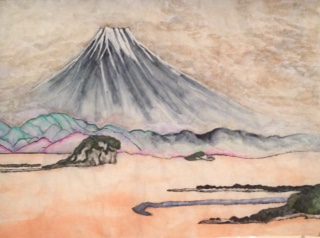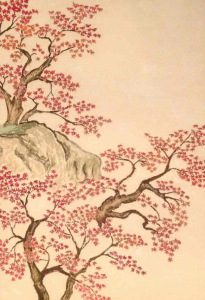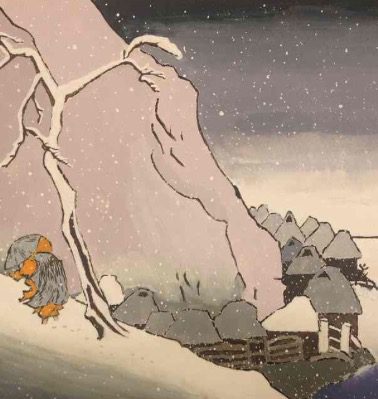Japanese poetry: Highly esteemed Hitomaro from 7th to early 8th century
Lee Jay Walker
Modern Tokyo Times

Kakinomoto no Hitomaro (Hito-maru from the Heian era and onwards) is regarded as one of the greatest Japanese poets to have blessed this country. His name is mentioned alongside Fujiwara no Teika, Iio Sōgi (Inō Sōgi), and Matsuo Bashō.
Hitomaro produced an abundance of waka poetry. Hence, in time, he would belong to the Thirty-six Poetry Immortals of Japan. His notoriety concerns his prominence in volumes 1 and 2 of the richly credited Man’yōshū.
Little is known about Hitomaro before compiling poetry of high esteem. Hence, his birth is tentatively stated to be between 653 to 655 – and he died in the early 8th century (707 to 710). However, it is known that Hitomaro served as court poet to Empress Jitō, who reigned between 686-697.

In a past article, I comment, “… doubts persist if his notoriety started under Emperor Temmu (631-686) or Emperor Tenji (626-672). It was once widely believed that his career began under Emperor Temmu. However, the notable scholar, Kitayama Shigeo, points in the direction of Emperor Tenji concerning a pair of composed poems alluding to the sad loss of a lady who belongs to the court of Emperor Tenji.”
Irrespective of the truth, Hitomaro mixed in high circles. Henceforth, he was widely respected within the imperial family. Hence, he shares a part of their world through the prism of his poetry.
In a lovely poem – despite the tragedy being related to the death of his wife – you feel the emotional side of this esteemed poet.
He wrote, forlornly:
Alas,
while our ways of love we still kept secret,
secret as pool sheltered in warm rocks,
my world a sunless waste became,
and clouds snuffed out the moon that lit my heaven.
For she, my love – as graceful as deep kelp fronds-
has faded from my days like autumn’s glory.
Such is the news the running messenger brings.
Like the clang of the bow-strings on
a whitewood bow they hit my ear,
but I find no word to answer
or means to offer solace,
any words are aching pain.

Overall, Hitomaro opens a window into Japanese high culture concerning the imperial family and various princes and princesses. Equally, you feel the warmth of his love.
http://sawakoart.com – ALL ART BY Sawako Utsumi
http://fineartamerica.com/featured/spirit-of-ukiyo-e-in-the-light-of-shinto-sawako-utsumi.html

PLEASE DONATE TO HELP MODERN TOKYO TIMES
Modern Tokyo News is part of the Modern Tokyo Times group
DONATIONS to SUPPORT MODERN TOKYO TIMES – please pay PayPal and DONATE to sawakoart@gmail.com
http://moderntokyotimes.com Modern Tokyo Times – International News and Japan News
http://sawakoart.com – Sawako Utsumi personal website and Modern Tokyo Times artist
https://moderntokyonews.com Modern Tokyo News – Tokyo News and International News
PLEASE JOIN ON TWITTER
https://twitter.com/MTT_News Modern Tokyo Times
PLEASE JOIN ON FACEBOOK